The Arrest of Julio Cesar Chavez Jr.: Boxing, Immigration, and Controversy Collide
The world of boxing is no stranger to drama, but the recent arrest of Julio Cesar Chavez Jr. has sent shockwaves far beyond the ring. In a matter of days, the former world champion went from headlining a high-profile bout against Jake Paul to being detained by U.S. immigration authorities and facing deportation to Mexico. The story is a complex web of legal troubles, family loyalty, sports controversy, and the ever-present debate over immigration enforcement. Let’s break down the events, the reactions, and the broader implications of this extraordinary saga.
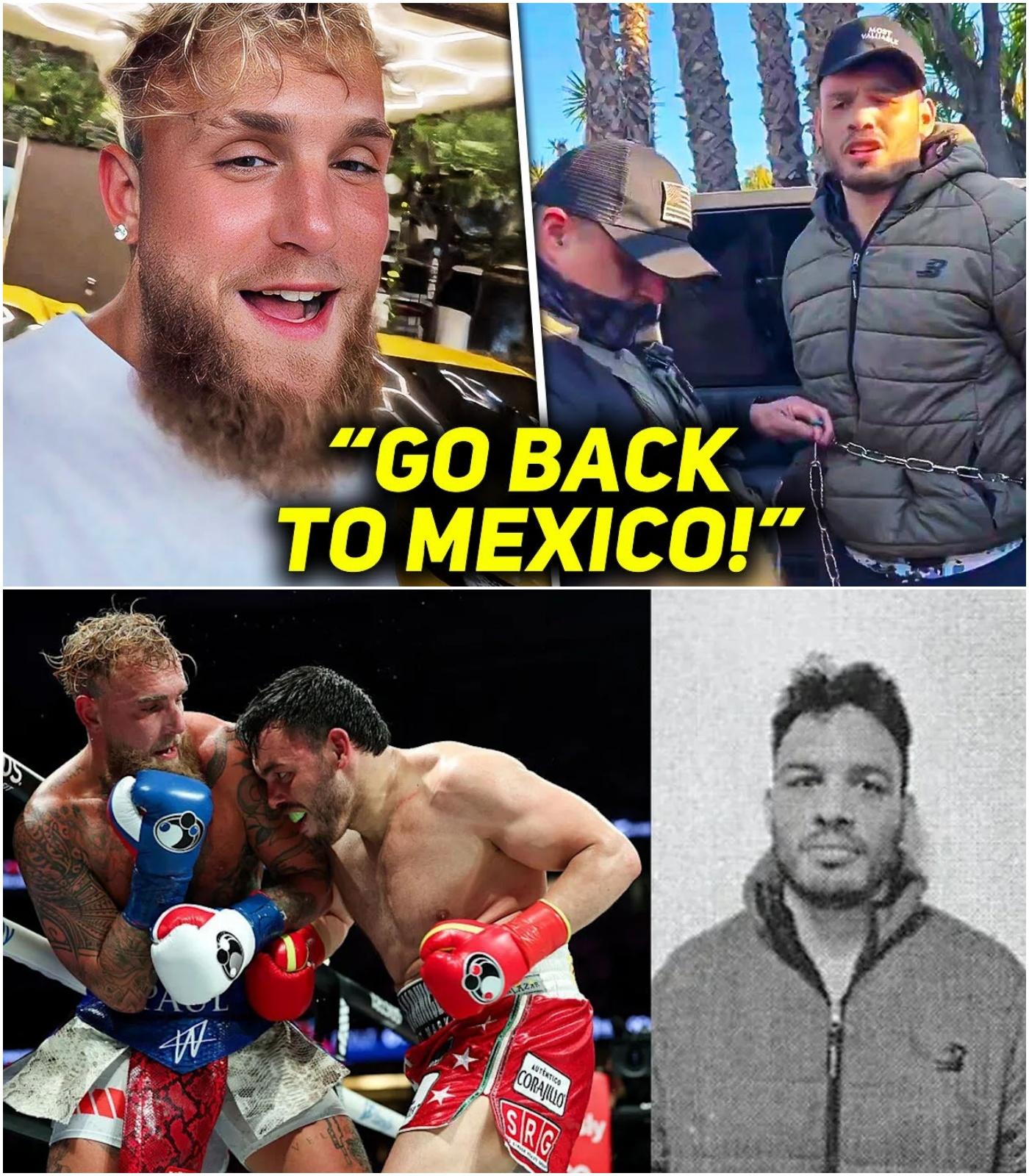
Julio Cesar Chavez Jr.: From Boxing Royalty to Legal Turmoil
A Legacy Overshadowed
Julio Cesar Chavez Jr. is not just any boxer—he is the son of Julio Cesar Chavez Sr., one of the most revered figures in the sport’s history. For years, Chavez Jr. has lived in the shadow of his father’s legendary career, striving to carve out his own legacy. Despite winning a world title and fighting on some of boxing’s biggest stages, his journey has been marred by inconsistency, personal struggles, and now, a legal crisis that threatens to define his public image.
The Arrest: What Happened?
Just days after his much-publicized fight with Jake Paul, Chavez Jr. was arrested by U.S. Immigration and Customs Enforcement (ICE) in Studio City, California. The arrest was not only for overstaying his visa but also in connection with an active arrest warrant in Mexico. The charges from Mexican authorities are severe: alleged involvement in organized crime, trafficking of firearms and ammunition, and purported ties to the notorious Sinaloa cartel.
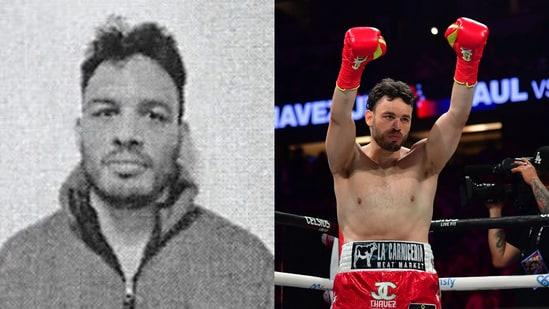
According to reports, Chavez Jr. entered the United States in August 2023 on a tourist visa, which expired in February. Despite this, he continued to live and compete in the U.S., culminating in his fight against Jake Paul. The timing of the arrest—so soon after a major sporting event—has fueled speculation and debate across the boxing community and beyond.
The Family’s Response: Loyalty and Pleas for Due Process
Chavez Sr. Speaks Out
In the wake of his son’s arrest, Julio Cesar Chavez Sr. released a heartfelt statement in Spanish, later translated and shared widely. The family expressed shock and dismay at the situation, emphasizing their unwavering support for Julio Jr. and their belief in his innocence. They called for respect for due process and urged the public and media not to rush to judgment.
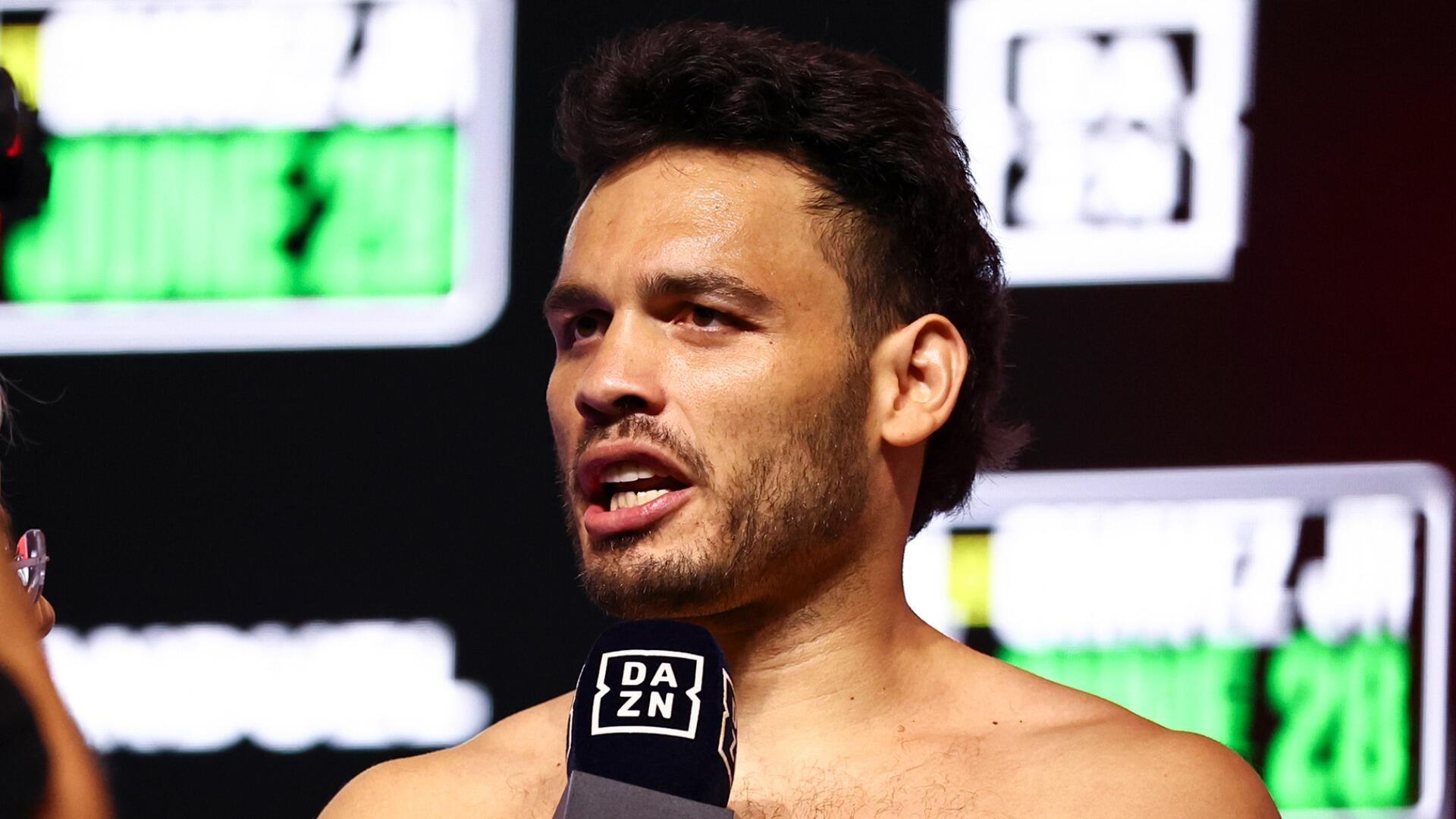
> “We have full confidence in his innocence. Julio is above all a son, a father, and a human being who has faced multiple challenges in his personal and professional life. We ask that due process be respected and no premature judgments be made.”
The statement also highlighted the family’s intention to refrain from further public comment until the legal process unfolds, asking for privacy and objectivity as authorities conduct their investigation.
A History of Personal Struggles
Chavez Sr.’s concern for his son is not new. Julio Jr. has faced well-documented personal challenges, including battles with substance abuse and stints in rehabilitation. The elder Chavez reportedly opposed his son’s decision to fight Jake Paul, fearing it could do more harm than good. The family’s plea for understanding is rooted in a long history of supporting Julio Jr. through difficult times.
The Legal Case: Immigration, Crime, and Public Perception
Immigration Violations and Expedited Removal
At the heart of the case is Chavez Jr.’s expired visa. As a Mexican citizen, he was required to maintain valid documentation while residing and competing in the United States. His failure to do so led to his detention and the initiation of removal proceedings. The Trump administration’s policies on immigration enforcement have continued to influence such high-profile cases, with officials emphasizing that “no one is above the law, including world-famous athletes.”
The Department of Homeland Security has moved quickly, seeking to deport Chavez Jr. under an expedited removal process. This approach is part of a broader crackdown on undocumented immigrants, a policy that has drawn both support and criticism in recent years.
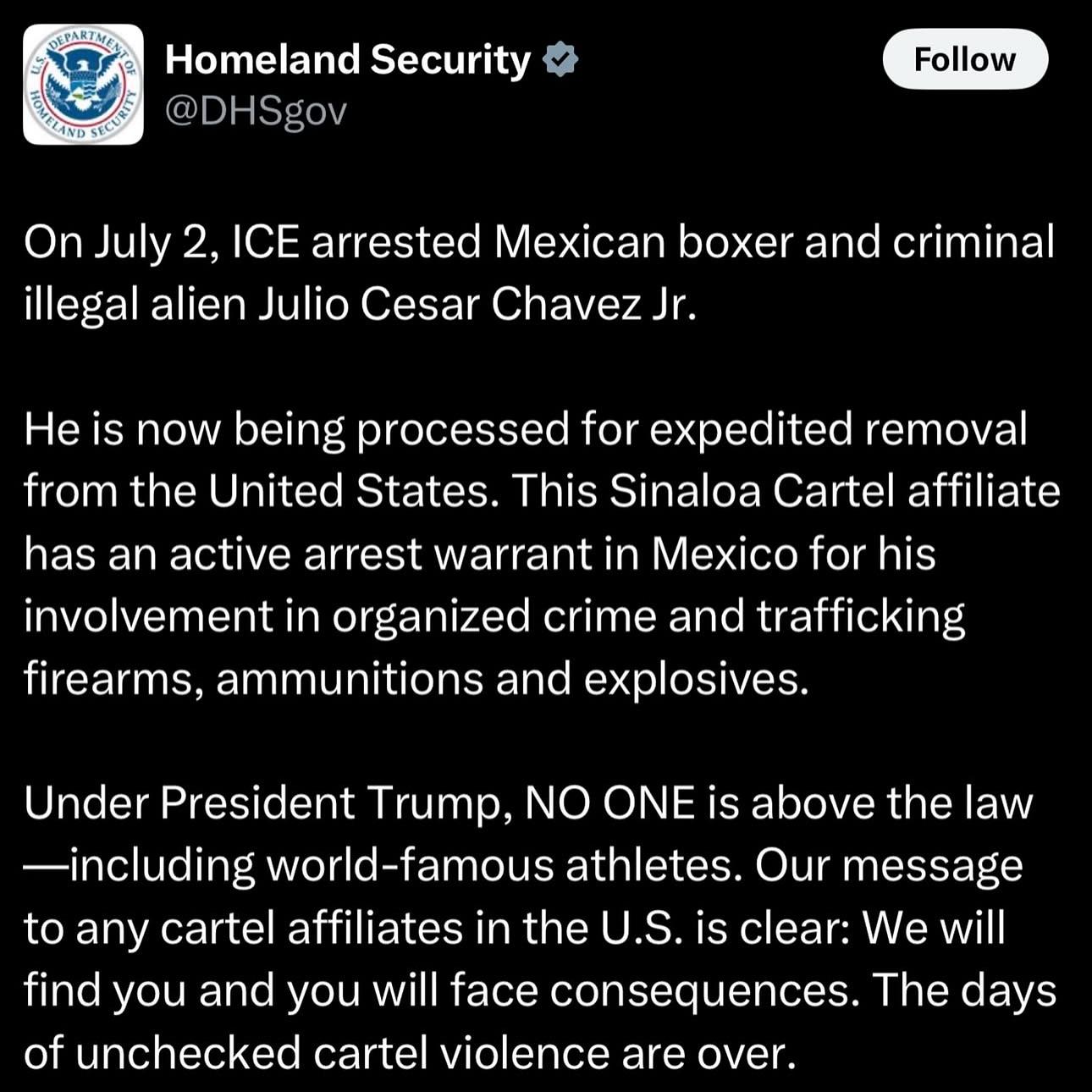
Allegations of Organized Crime
What sets this case apart from typical immigration violations are the serious criminal allegations from Mexican authorities. Chavez Jr. is accused of involvement in organized crime, specifically trafficking firearms, ammunition, and explosives, and maintaining ties to the Sinaloa cartel. These charges, if proven, carry significant legal consequences and have transformed the case from a sports story into an international legal drama.
Questions of Oversight and Accountability
The fact that Chavez Jr. was able to participate in a major boxing event despite his expired visa and active arrest warrant has raised questions about oversight within the sport. Critics have pointed to failures by regulatory bodies, promoters, and officials who allowed the fight to proceed. The situation has sparked debate about the integrity of boxing’s governing systems and whether proper checks were conducted before approving the match.
The Boxing Community Reacts: Shock, Support, and Skepticism
Mixed Reactions from Boxing Insiders
The arrest has elicited a wide range of reactions from the boxing world. Some, like veteran reporter Ellie Sekbach, have voiced strong support for Chavez Jr., questioning the validity of the accusations and suggesting that he is being unfairly targeted. Sekbach, who has known Chavez Jr. for years, described him as a generous and caring individual, far removed from the criminal image painted by authorities.
> “He’s not a street kid. He’s not a gangster. It’s not in his character, any of this.”
Others in the boxing community have taken a more pragmatic view, arguing that the law applies equally to everyone, regardless of fame or status. The debate reflects broader tensions within the sport about how to handle legal and ethical issues involving high-profile athletes.
Social Media and the Court of Public Opinion
The story has exploded on social media, with fans and commentators offering a dizzying array of opinions. Some have drawn comparisons to unrelated cases, such as the recent legal troubles of music mogul Diddy, suggesting that the timing of Chavez Jr.’s arrest is suspicious. Others have focused on the implications for the sport, questioning how such a situation could occur in the first place.
Jake Paul’s own tweet—“Canelo is next”—added fuel to the fire, with many interpreting it as a provocative jab at another Mexican boxing superstar, Canelo Alvarez. While Canelo’s situation is entirely different, the tweet intensified the conversation about the intersection of sports, immigration, and legal accountability.
The Fight with Jake Paul: A Turning Point?
The Match Itself
Chavez Jr.’s fight with Jake Paul was billed as a major event, drawing millions of viewers and intense media coverage. Yet the bout itself was underwhelming for many fans. Chavez Jr. appeared passive for much of the fight, throwing few punches and only showing aggression in the final rounds. Jake Paul, though fatigued, managed to hold on and secure a unanimous decision victory.
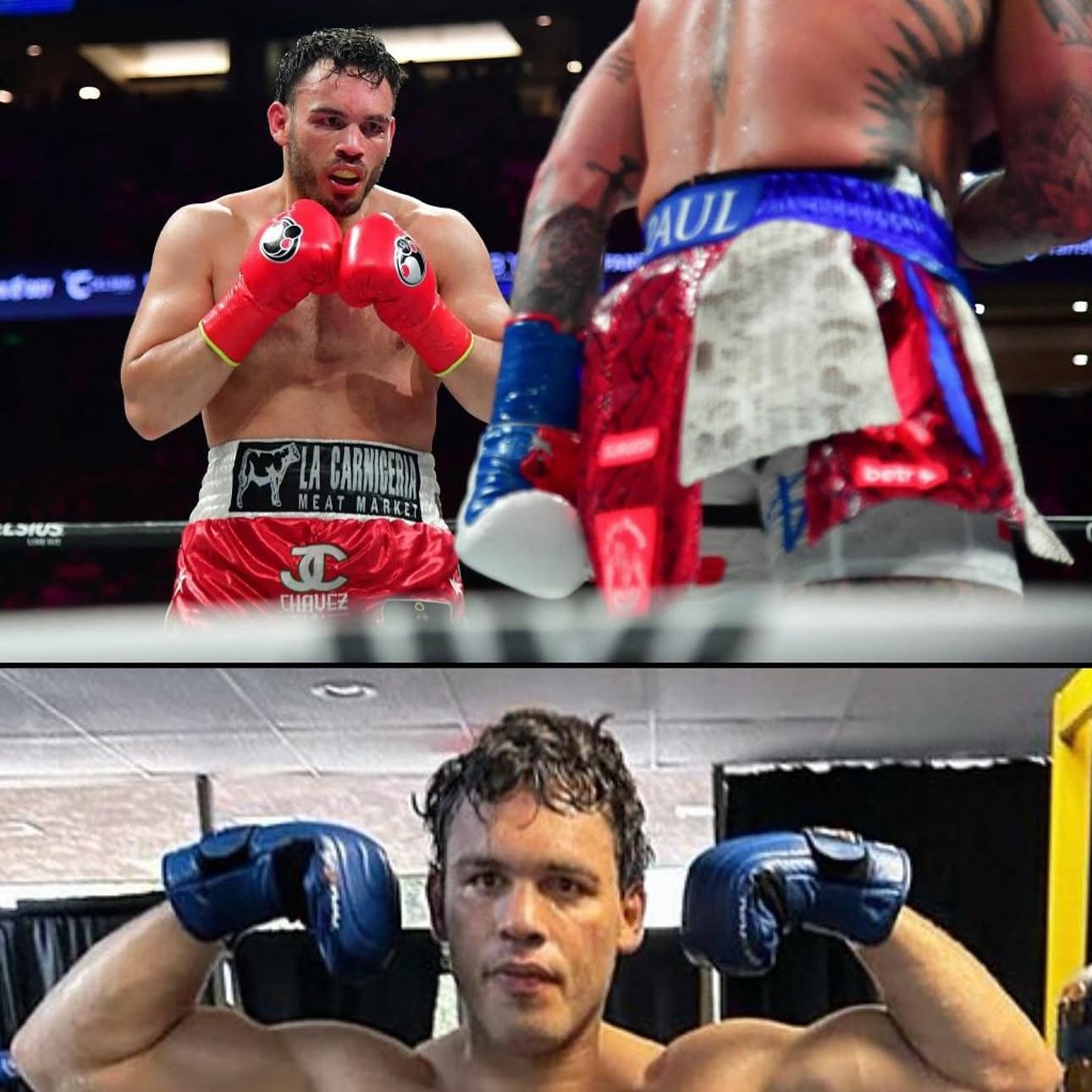
The lackluster performance led to widespread speculation about Chavez Jr.’s motivation and preparation. Some fans accused him of entering the ring purely for financial reasons, while others suggested the fight was “rigged” or staged for entertainment value. The controversy only deepened when Google reportedly displayed the fight’s result before it had officially concluded, fueling conspiracy theories about pre-arranged outcomes.
Fallout and Fan Reactions
The defeat, followed so closely by Chavez Jr.’s arrest, created a perfect storm of drama and speculation. Some fans saw the fight as a turning point that exposed Chavez Jr. to greater scrutiny, both from the public and from authorities. Others lamented the decline of a once-promising career, blaming those around Chavez Jr. for failing to intervene before things spiraled out of control.
The spectacle has also reignited debates about the legitimacy of celebrity boxing matches and the responsibilities of promoters and regulators to ensure fair play and legal compliance.
Broader Implications: Sports, Immigration, and Public Policy
High-Profile Cases and Immigration Enforcement
Chavez Jr.’s arrest is being viewed by some as a high-profile example of the United States’ intensified immigration enforcement. The Department of Homeland Security has made it clear that fame offers no protection from the law, and the case has been used to send a message to would-be undocumented immigrants.
Recent ad campaigns broadcast across Mexico have warned against illegal entry into the U.S., drawing criticism from Mexican officials who view them as discriminatory. The controversy highlights the ongoing tensions between the two countries over immigration policy and enforcement.
The Human Side of the Story
Amid the legal and political drama, it’s important not to lose sight of the human element. Chavez Jr. is a son, a father, and a person who has faced significant personal challenges. His family’s plea for compassion and due process is a reminder that behind every headline is a real person whose life is being upended.
The case also raises questions about the support systems available to athletes, particularly those dealing with personal and legal struggles. The pressures of fame, the demands of competition, and the complexities of international law can create a perfect storm for those who are unprepared or unsupported.
The Future: What Comes Next for Julio Cesar Chavez Jr.?
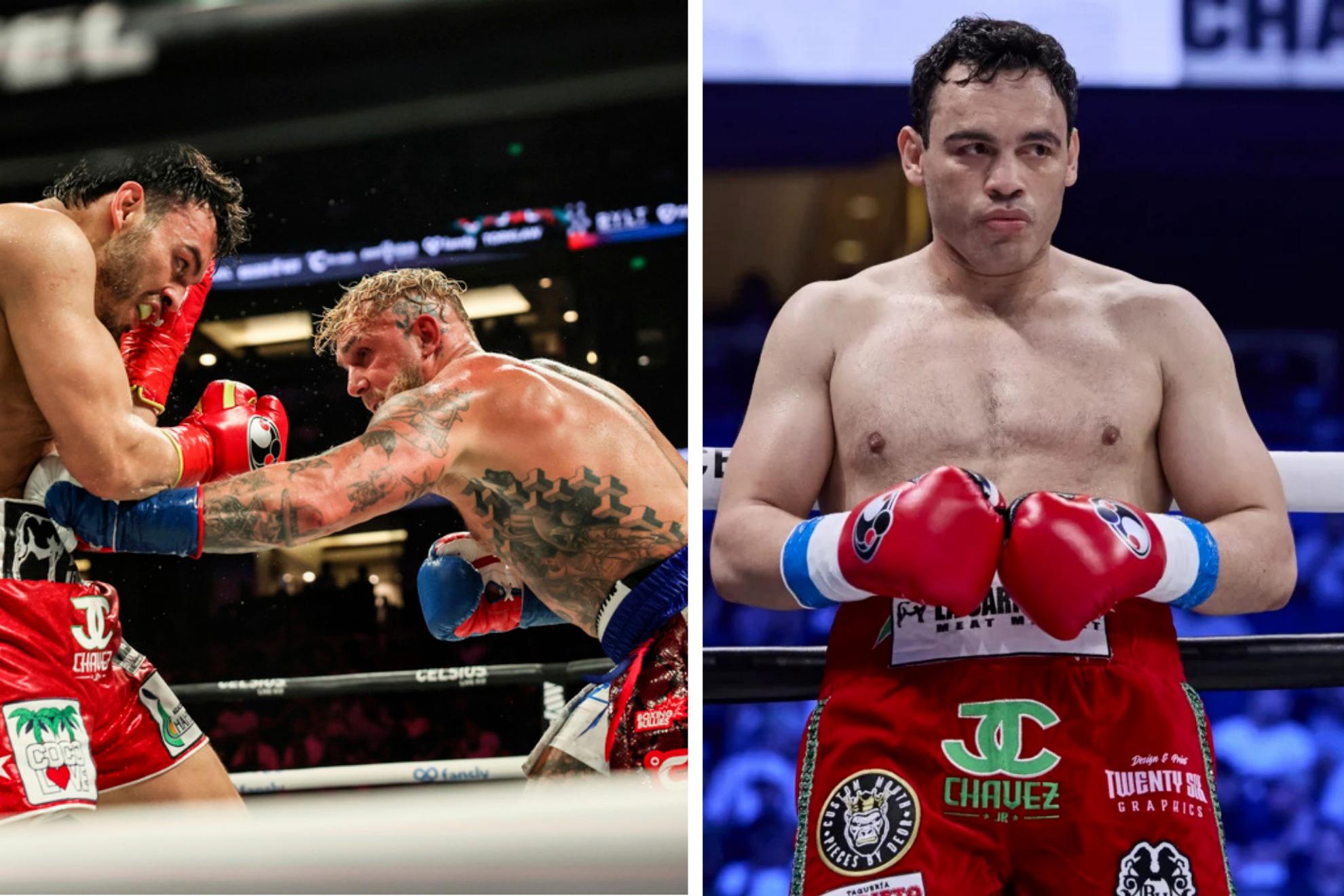
Legal Proceedings and Unanswered Questions
As of now, Chavez Jr. faces deportation to Mexico, where he will have to answer to serious criminal charges. The outcome of his case remains uncertain, and the boxing world will be watching closely to see how the legal process unfolds. His family and supporters continue to maintain his innocence, while authorities insist that the charges are legitimate and must be addressed.
The Legacy of a Fallen Star
Regardless of the legal outcome, the events of the past weeks have left an indelible mark on Chavez Jr.’s legacy. Once seen as the heir to a boxing dynasty, he now finds himself at the center of a cautionary tale about the dangers of fame, the importance of legal compliance, and the unpredictable nature of public life.
Lessons for the Sporting World
The Chavez Jr. saga offers important lessons for athletes, promoters, and regulators alike. It underscores the need for vigilance in legal and ethical matters, the importance of robust support systems for athletes, and the risks inherent in the intersection of sports and celebrity culture.
Conclusion: A Story Still Unfolding
The arrest of Julio Cesar Chavez Jr. is more than just a sports story—it is a reflection of broader societal issues, from immigration policy to the pressures of fame. As the legal process continues, the world will be watching to see whether justice is served, lessons are learned, and whether Chavez Jr. can find redemption, either in the ring or beyond.
For now, the boxing world remains in shock, the debates rage on, and the fate of one of its most famous sons hangs in the balance.





